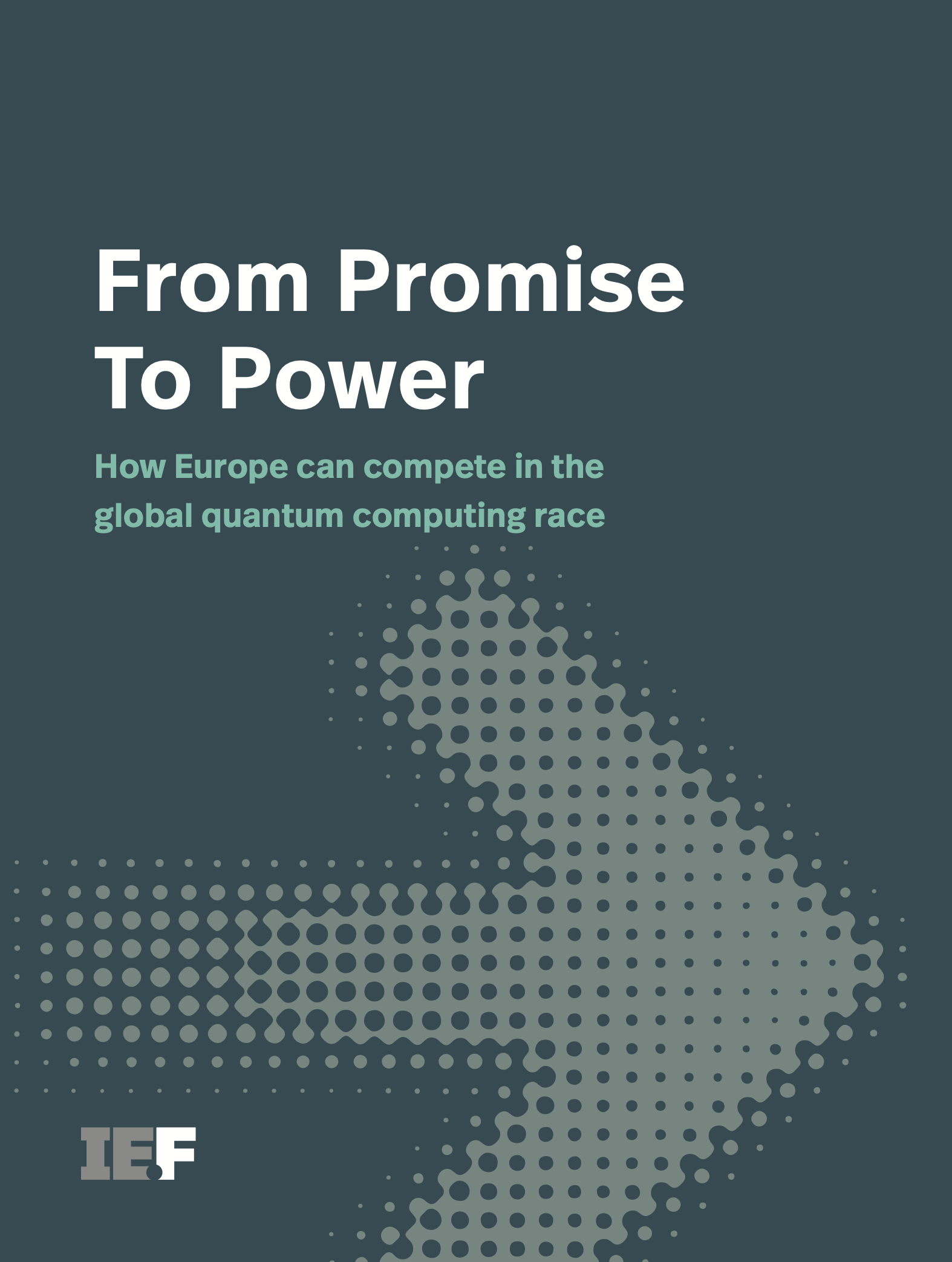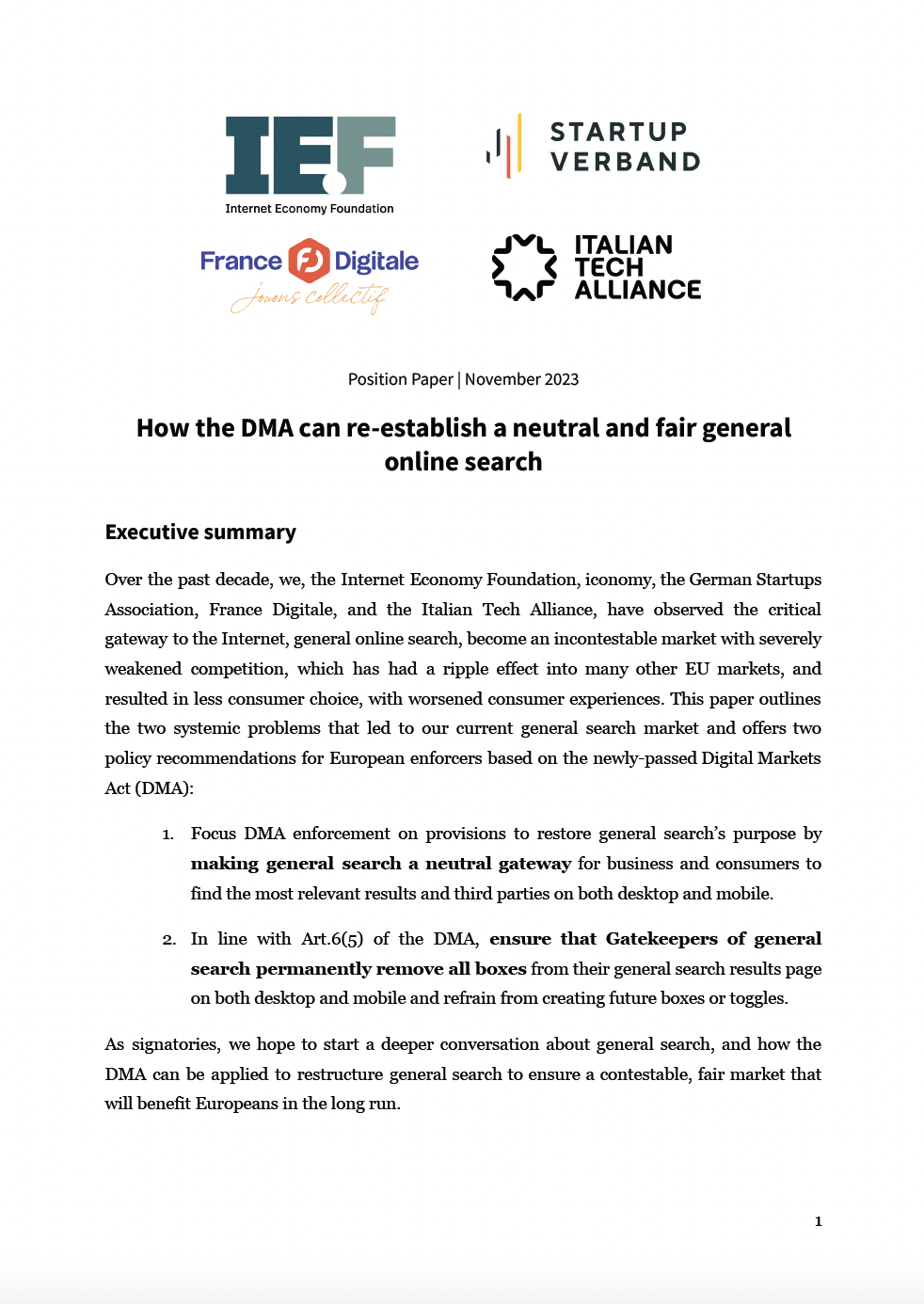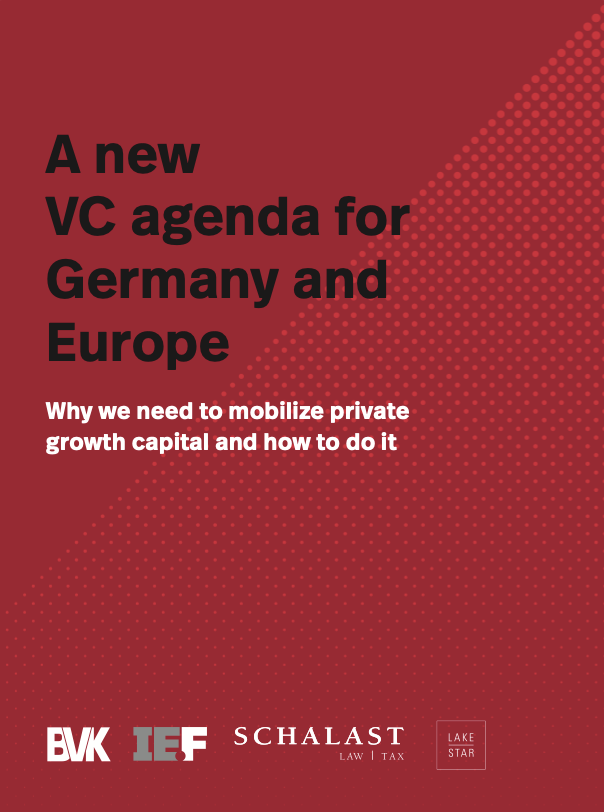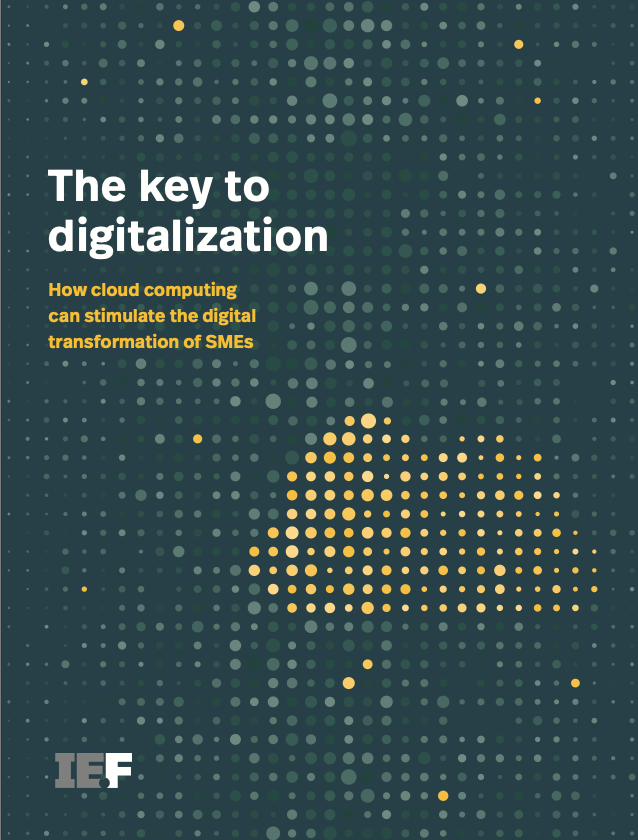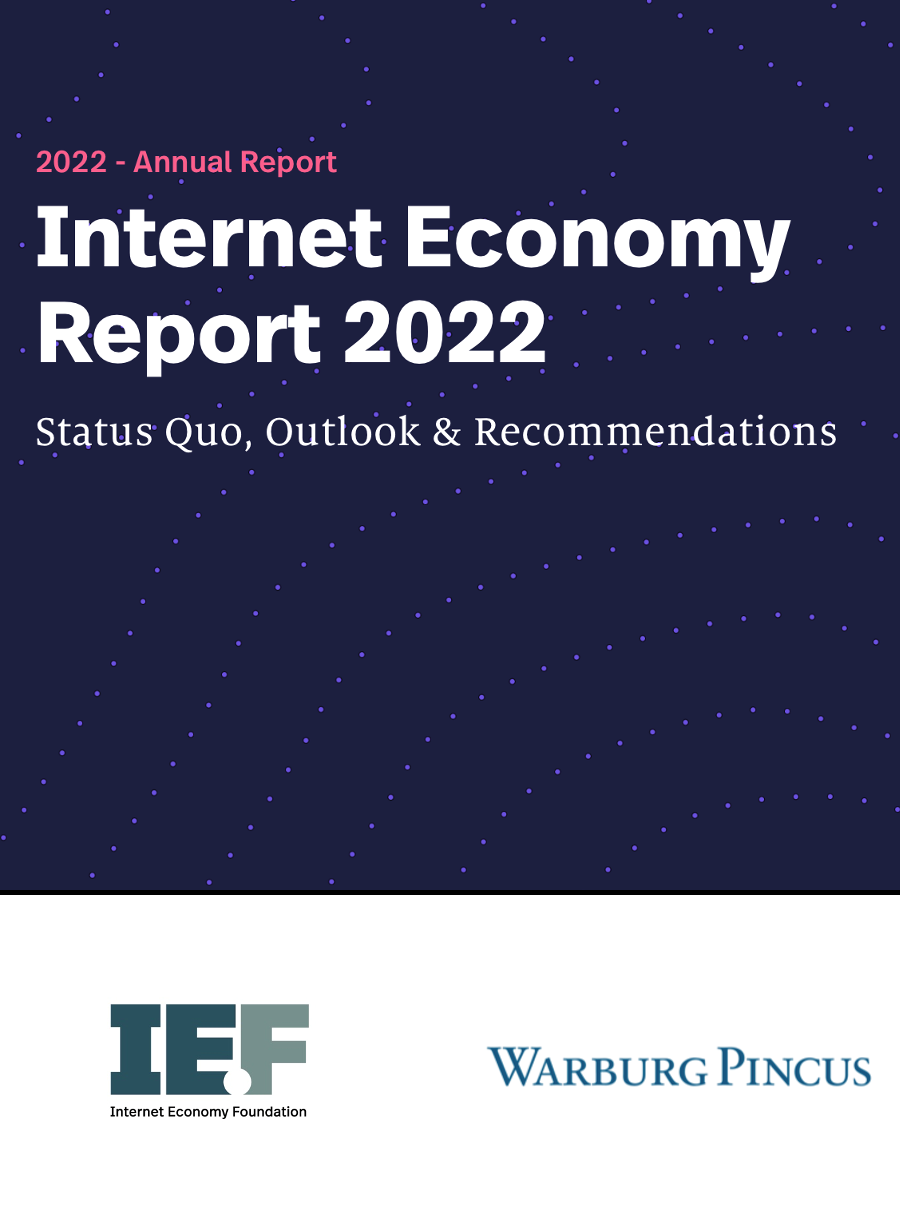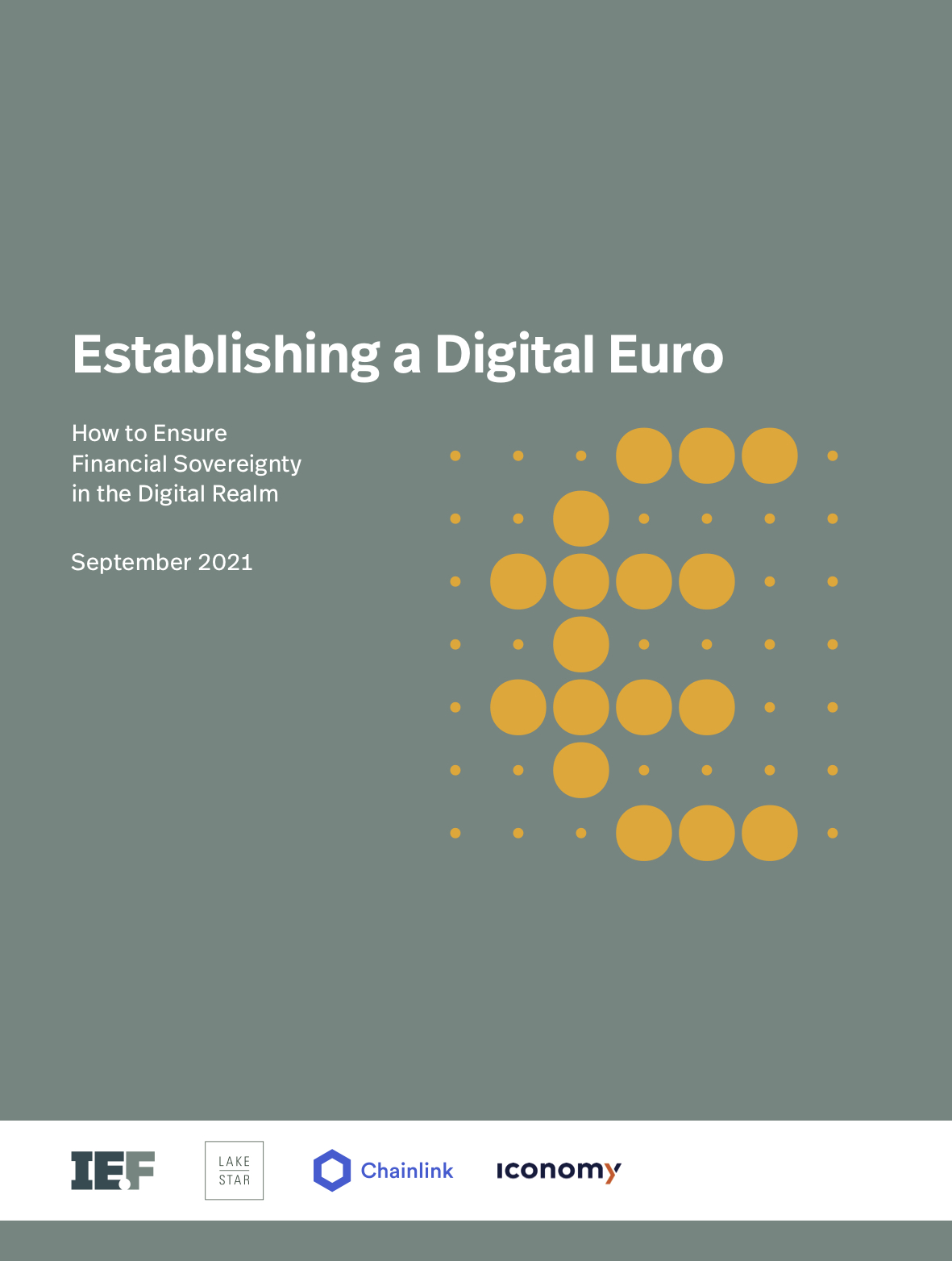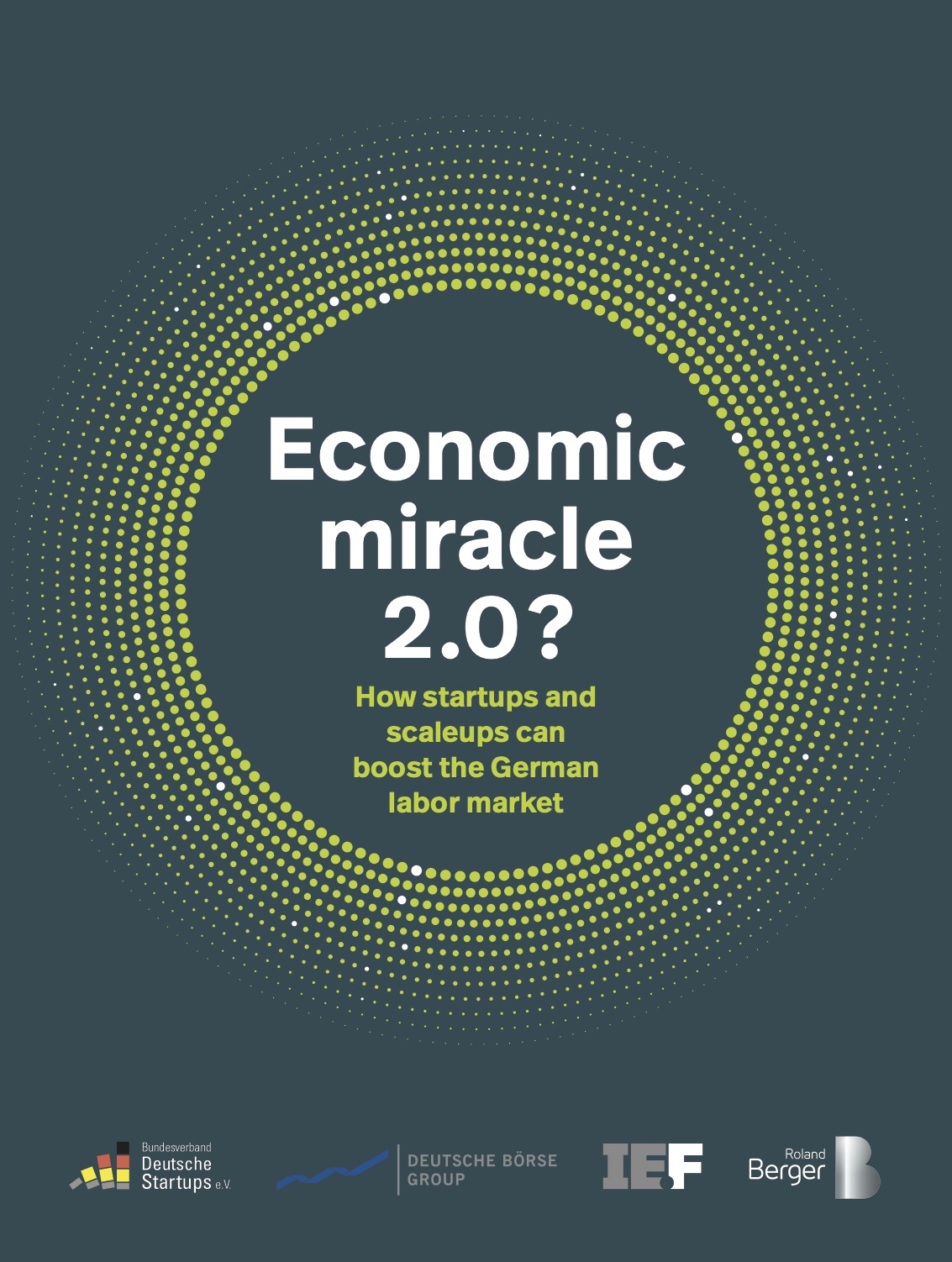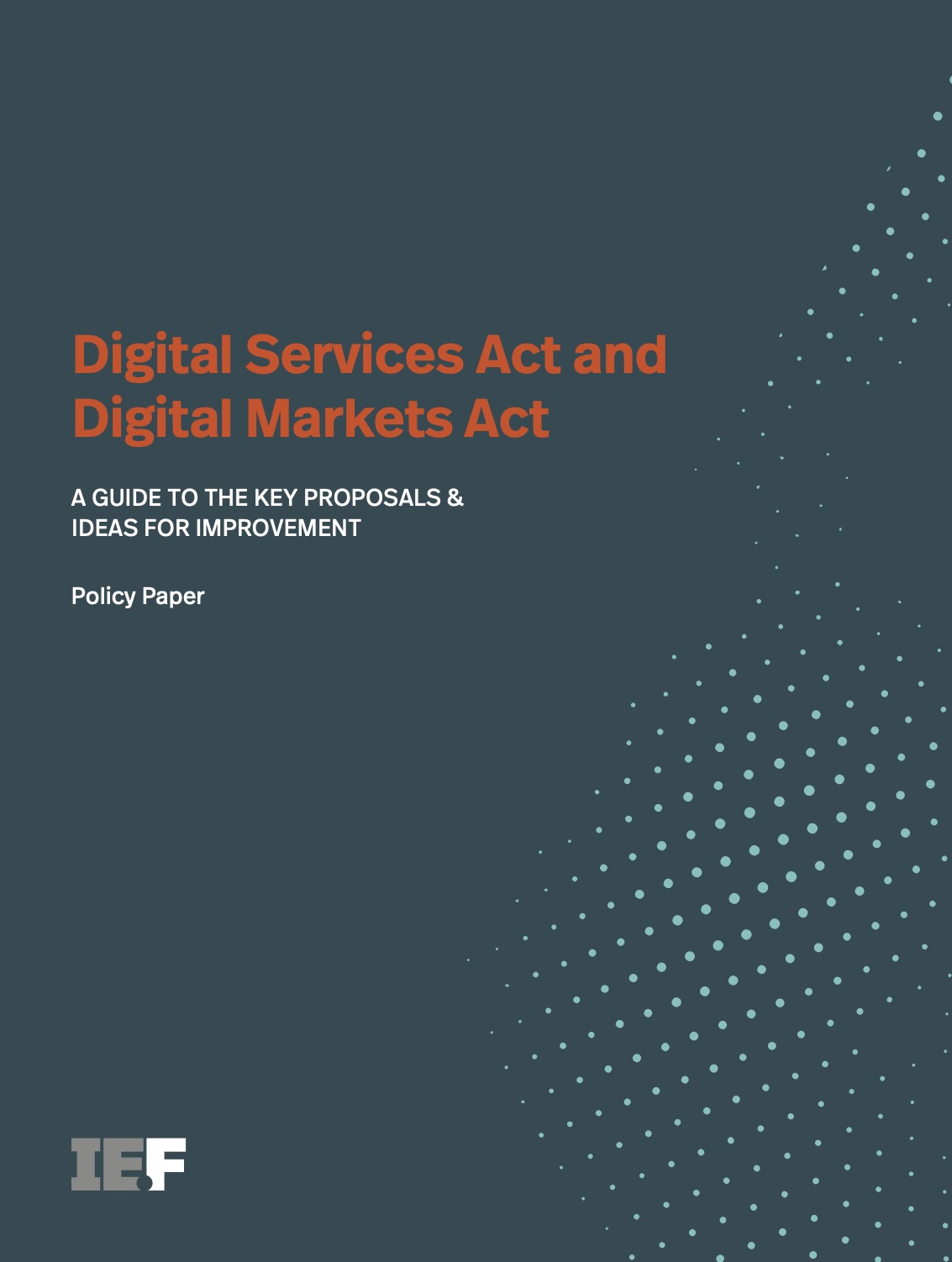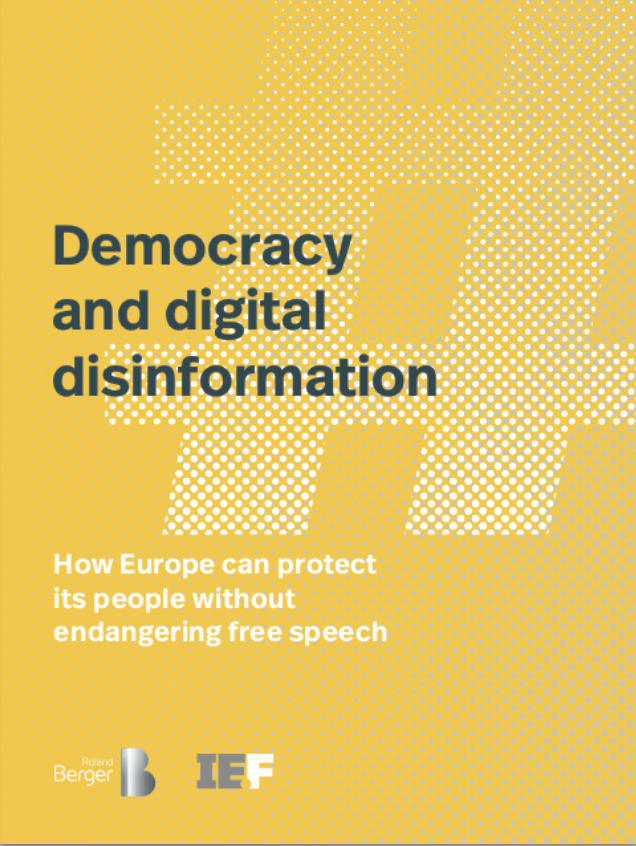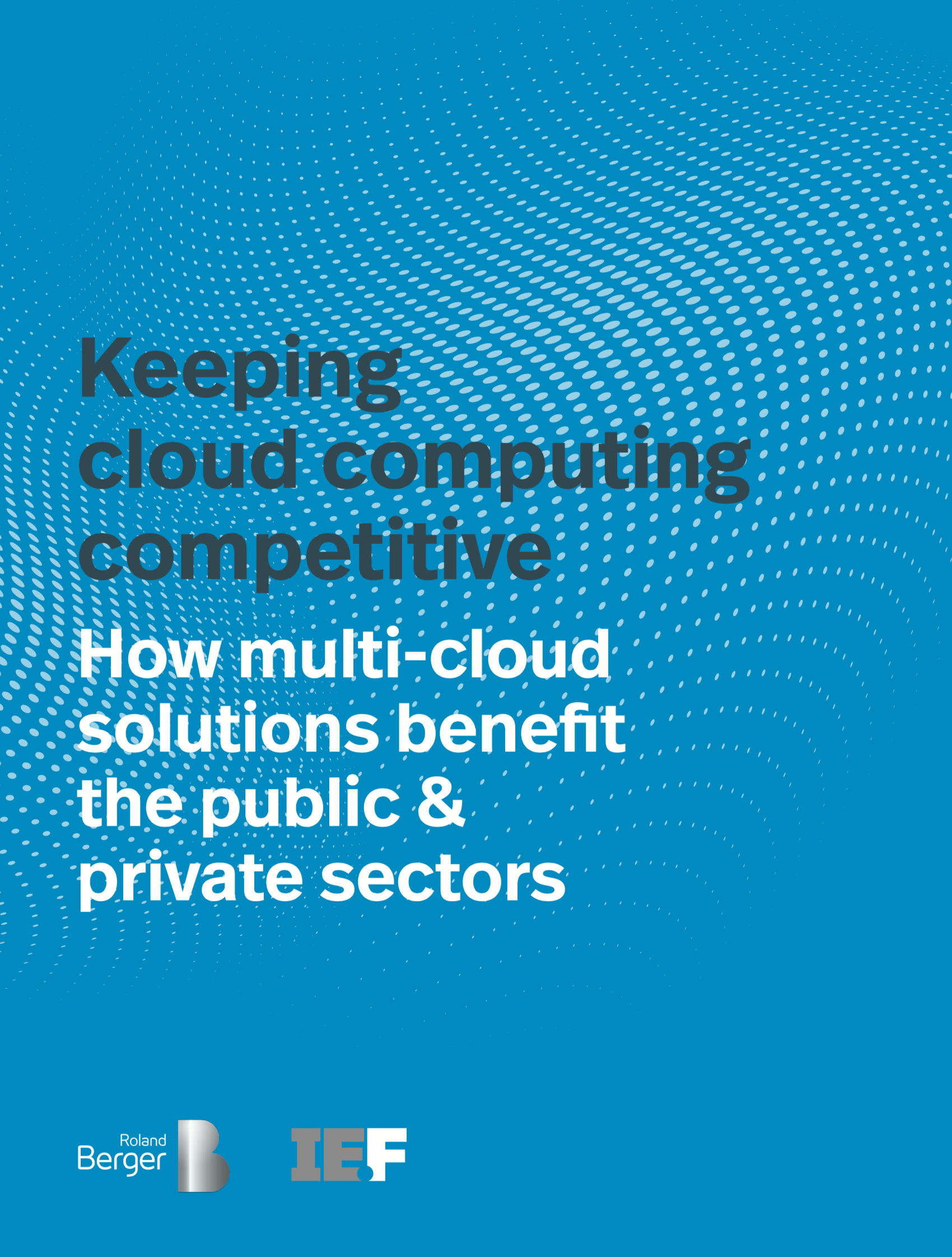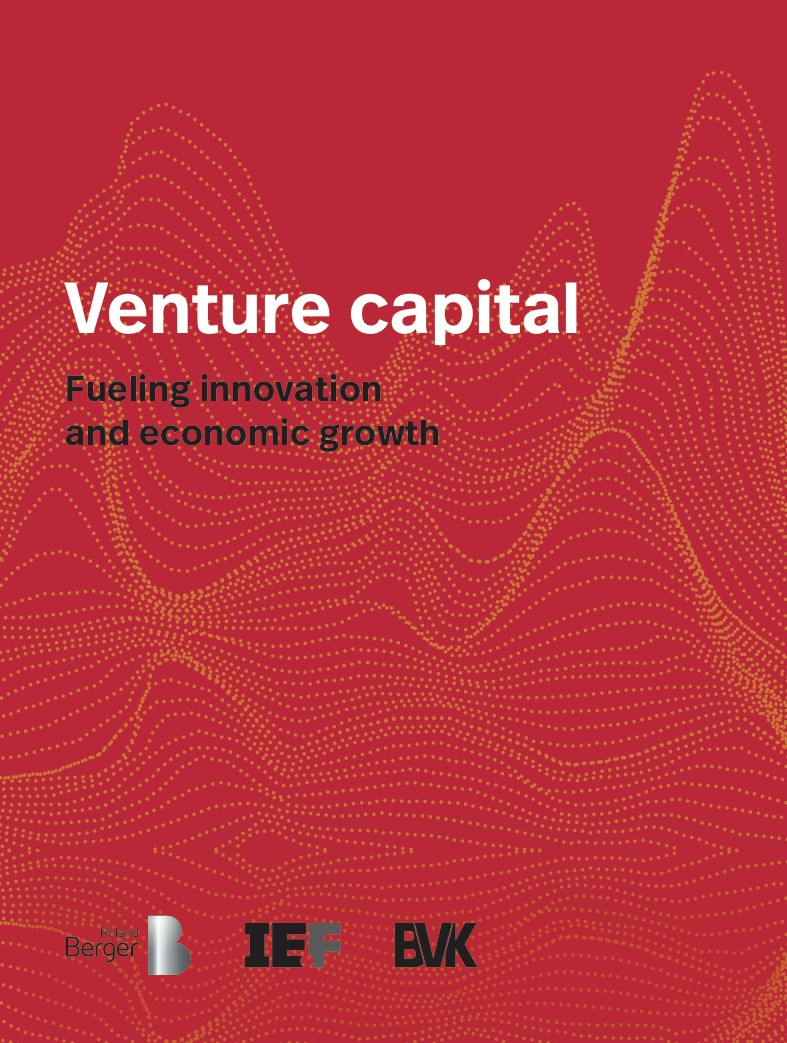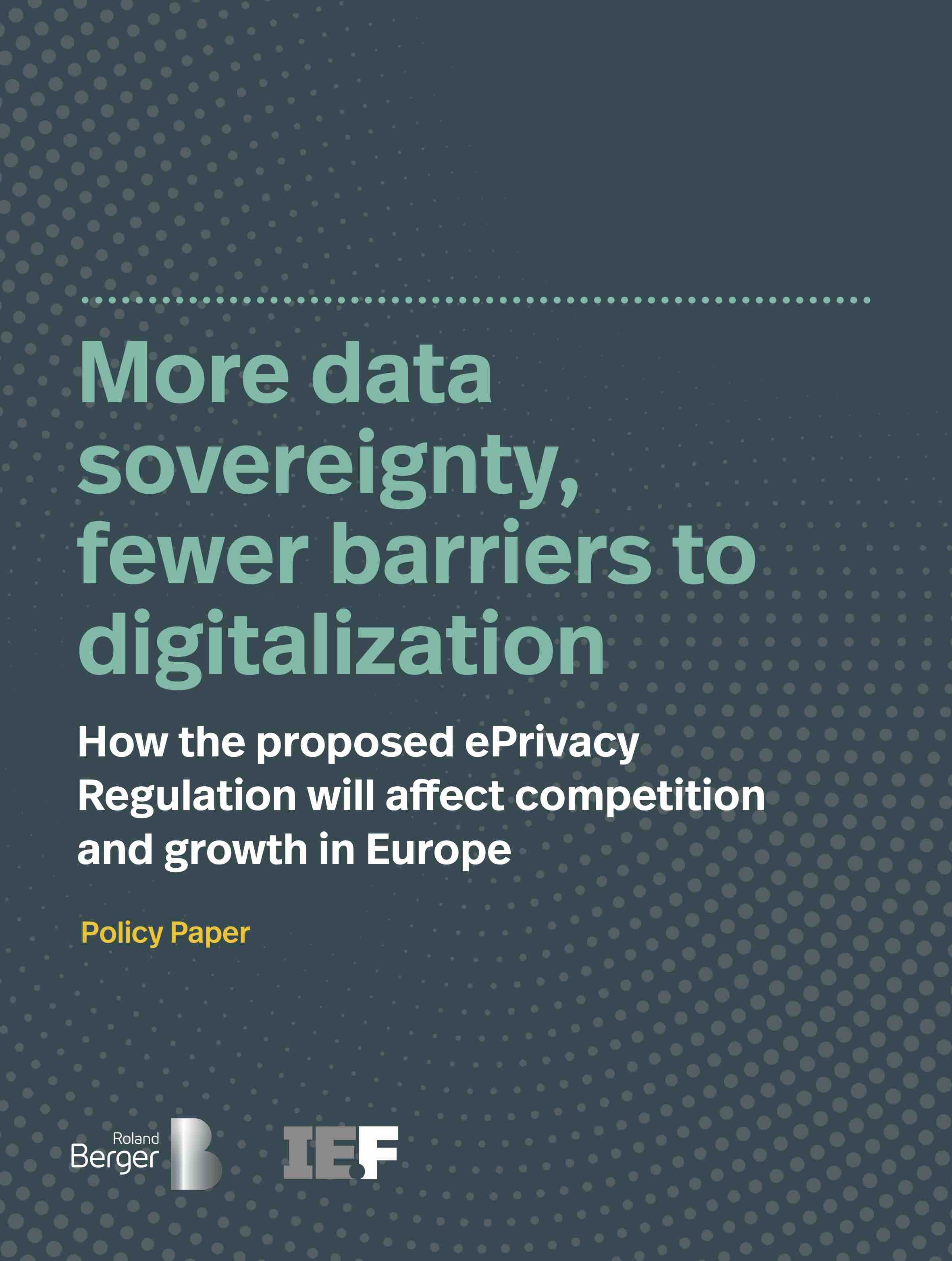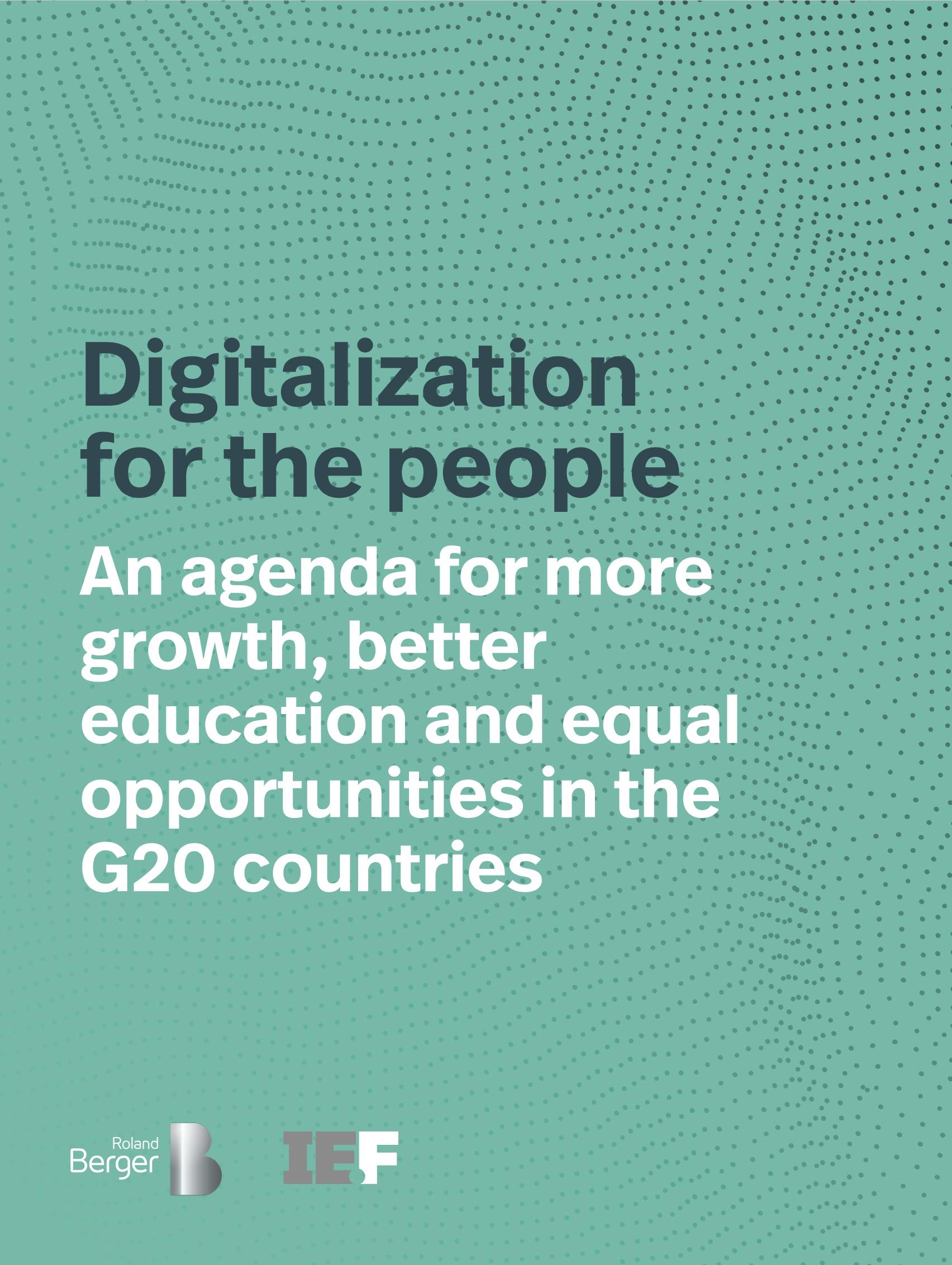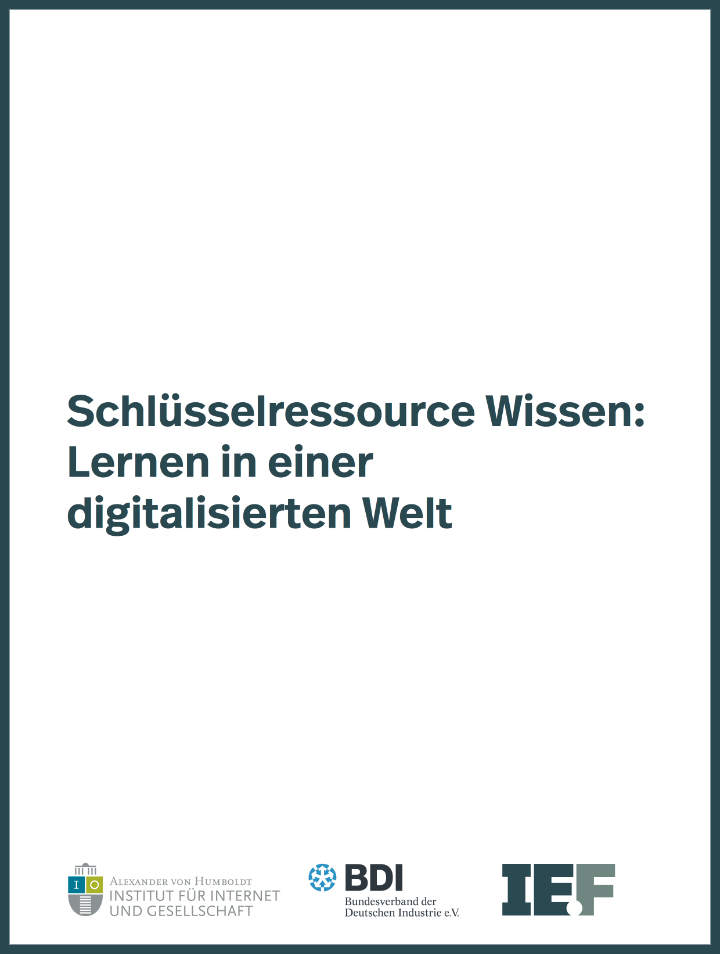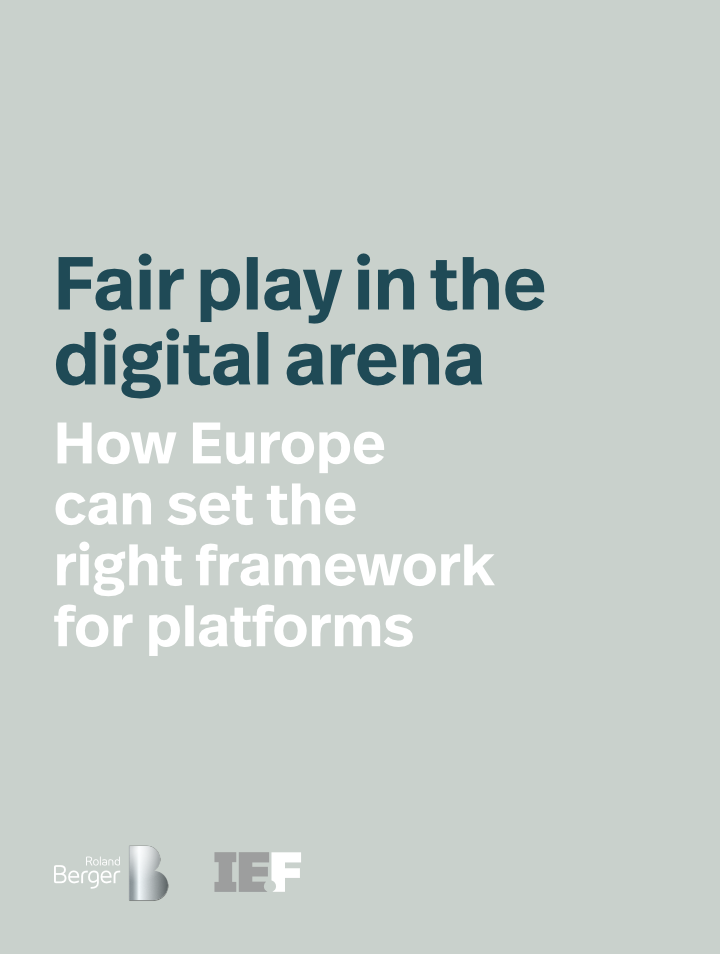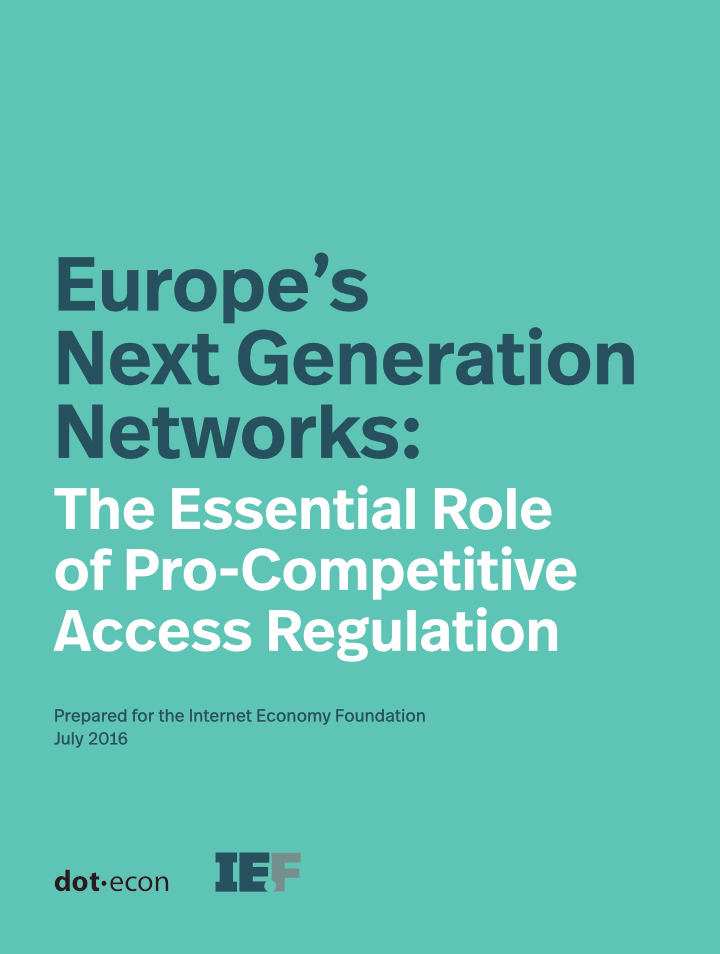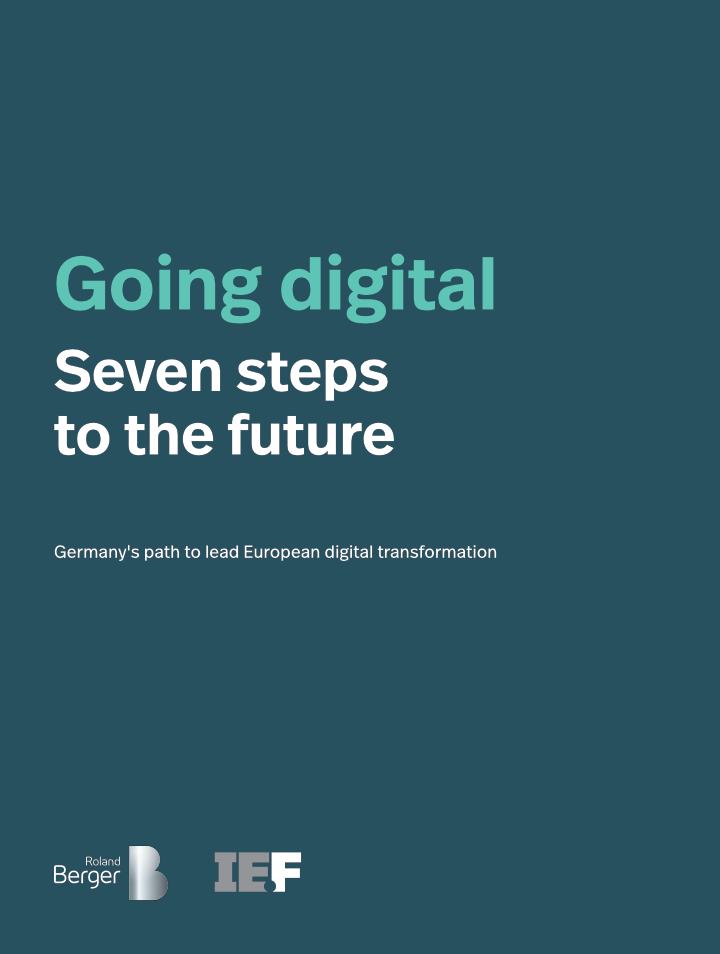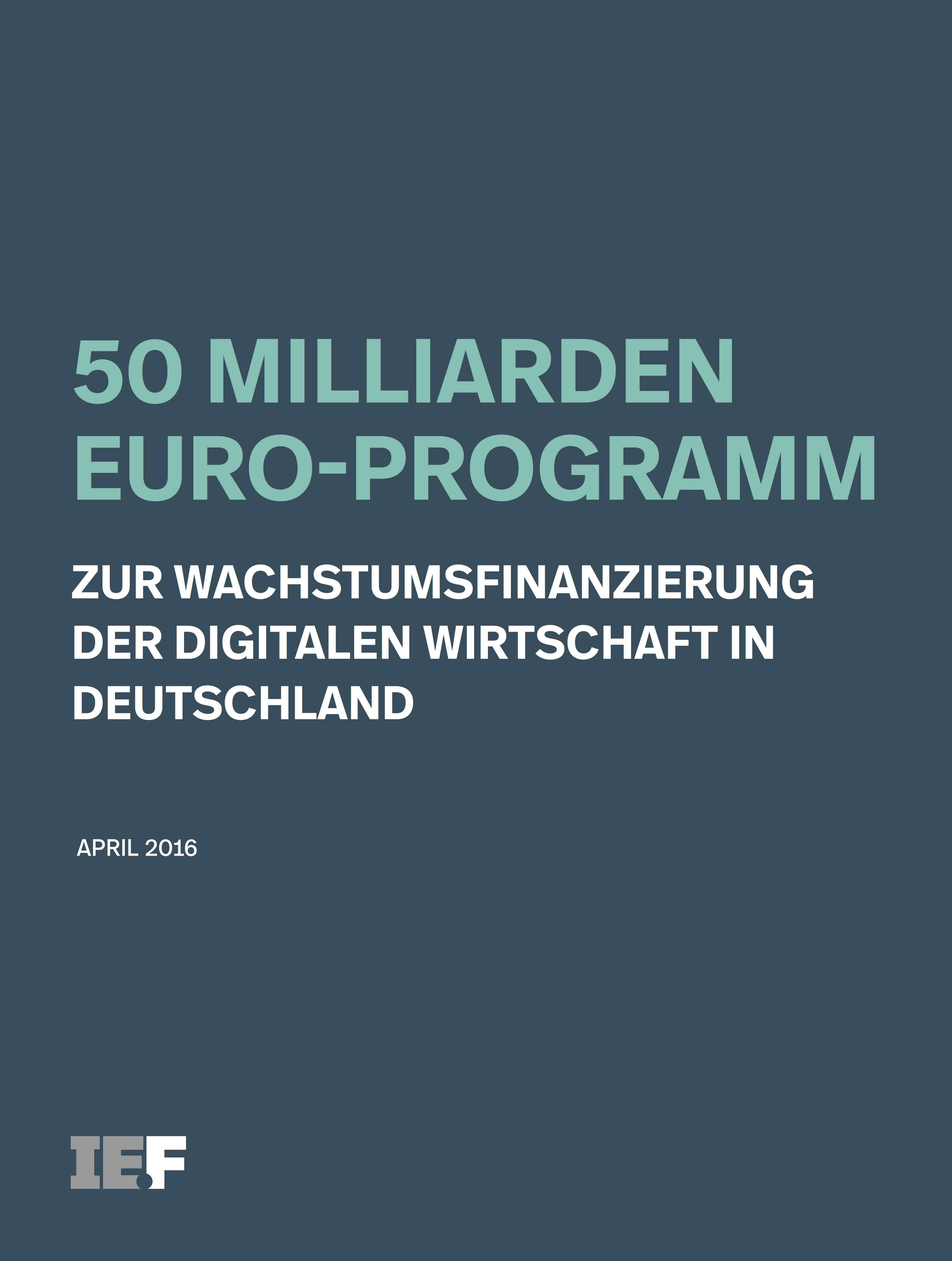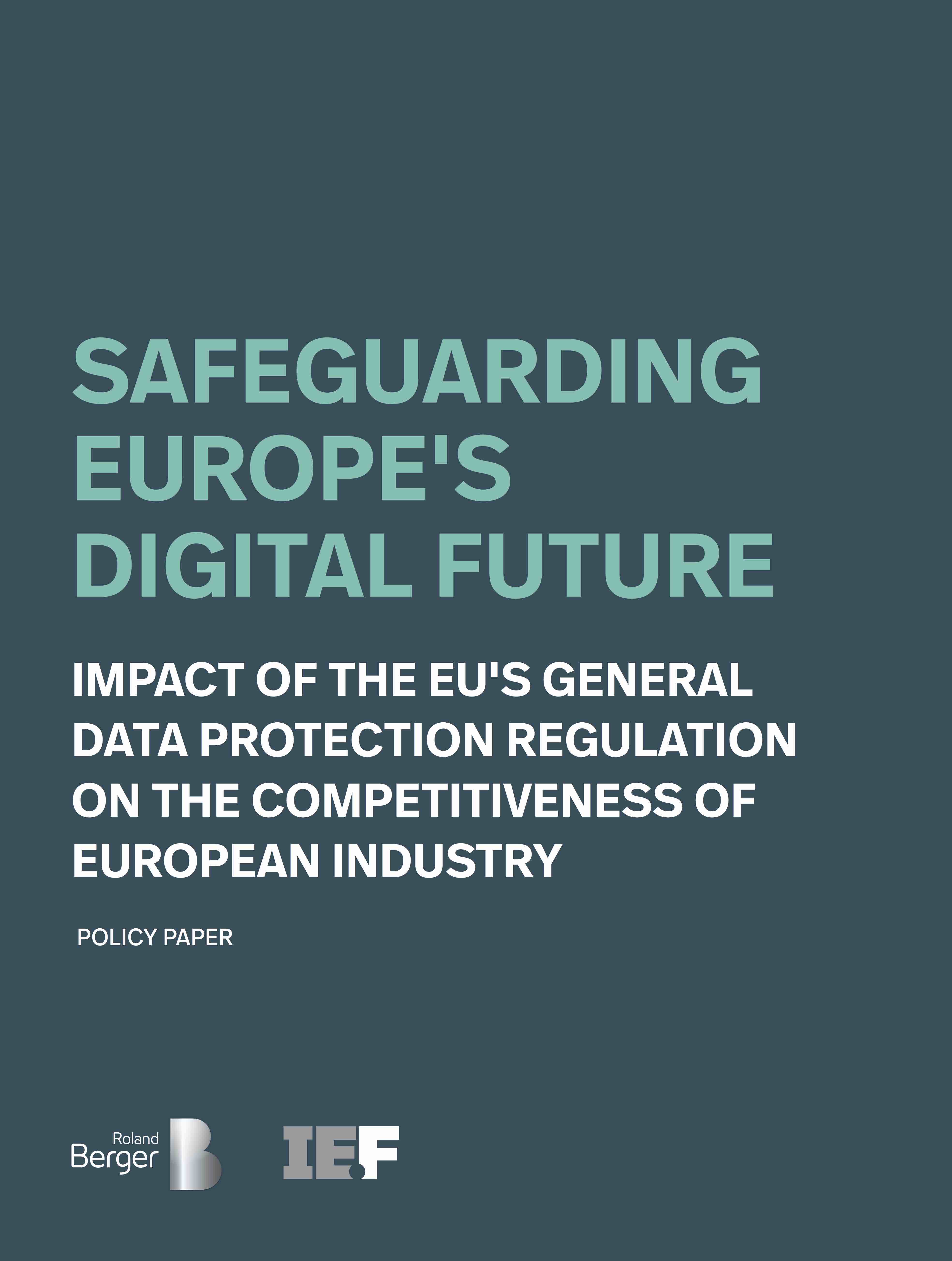Publications
As an independent advisor, the IE.F regularly publishes comprehensive studies. Together with strong partners, we provide a fundamental factual basis for enlightened discourse and give concrete recommendations for action to build a future-ready digital economy in Germany and Europe.
13.10.2025
From Promise to Power - How Europe can compete in the global quantum computing race
The Innovate Europe Foundation (IE.F) presents its latest policy paper with clear recommendations for action for politicians and businesses. In order to compete in the global quantum computing race, Europe should support national quantum pioneers, establish platform hubs, mobilise public and private investment, establish the state as a reliable anchor customer, and integrate quantum computing into defence budgets.
10.09.2024
Beyond the hype: How generative AI can unlock real value for Europe
Together with Roland Berger, the IE.F has published a policy paper on how generative AI can create real value in Europe and thus move the continent forward.
The current state of the technology and its implementation in Europe shows that although the hype surrounding generative AI is great, the hoped-for breakthrough in widespread use in companies and administration has not yet materialised. To remedy this, the policy paper calls for greater utilisation of existing domain knowledge, the establishment of a sovereign European infrastructure and the closing of the existing capital market gap.
28.11.2023
How the DMA can re-establish a neutral and fair general online search
Together with our partners at France Digitale, Bundesverband Deutsche Startups, and the Italian Tech Alliance, the IE.F has published a joint position paper on how the EU's Digital Markets Act can re-establish a neutral and fair general online search. Over the past decade, the critical gateway to the Internet, general online search, has become an incontestable market with severely weakened competition. This has had a ripple effect into many other EU markets, resulting in less consumer choice and worsened experiences.
The sole designated Gatekeeper for general search, Alphabet’s Google Search, has had a market share of over 90% in the European Economic Area since 2011, with 93% of EU users using Google for general search today. The position paper demonstrates how Google has systematically entered six European tech markets via unfair practices. Published with only 100 days to go until the enforcement phase of the Digital Markets Act (DMA), we discuss how to ensure General Search can be made compliant to the new standards of fair competition.
17.05.2023
A new VC agenda for Germany and Europe - Why we need to mobilize private growth capital and how to do it
In this study, we highlight the ongoing significant obstacles that hinder access to venture capital, including a lack of private capital from institutional investors, internationally non-competitive legal frameworks, and limited participation opportunities for startup employees and citizens in the value creation of startups and young companies.
To strengthen Europe's and Germany's competitiveness, the study presents five specific policy recommendations. Additionally, leading venture capital investors in the study provide a range of starting points and make concrete implementation suggestions on how Europe and Germany can be strengthened in the global competition.
15.12.2022
The key to digitalisation - How cloud computing can stimulate the digital transformation of SMEs
In this study, we describe how cloud computing services can accelerate and simplify SMEs' digital transformation. The study examines the state of cloud computing in SMEs and identifies the key barriers that prevent them from moving to the cloud. How can the federal government facilitate overcoming these hurdles? How can it create a better cloud computing ecosystem in Germany and Europe?
07.09.2022
Launch of the new Internet Economy Report 2022
The Internet Economy Report, an annual publication from the IE.F and Warburg Pincus, dives into the systemic issues at the heart of Europe’s digital future. It highlights the steps necessary for Europe to catch up and remain relevant in the 21st century, focusing on key areas such as infrastructure, venture capital, the startup ecosystem and web regulation.
Our goal is to compile the most important facts and figures, analyze current trends, and offer specific policy recommendations for Europe’s digital future. In addition to the content itself, this unique, mobile-first format can be downloaded and shared entirely or chapter by chapter.
08.09.2021
Establishing a Digital Euro – How to Ensure Financial Sovereignty in the Digital Realm
In the wake of the European Central Bank’s announcement in July 2021 that it will begin the process of developing a digital Euro, this new study explains the key design decisions that lie ahead and how each of them can potentially affect the longstanding structures of the monetary and financial systems. It also recommends important guidelines for the ECB to ensure that a digital Euro addresses Europe’s current weakness in global financial services and strengthens Europe’s booming ecosystem of innovation in FinTech, Decentralized Finance (DeFi) and emerging sectors.
The study is a cooperation between the IE.F, Lakestar, Chainlink and iconomy.
08.07.2021
Economic Miracle 2.0? – How Startups and Scaleups Can Boost the German Labor Market
What is the economic impact of startups and scaleups?
We collaborated with the German Startup Association, Deutsche Börse, and Roland Berger to shed light for the first time on the role that startups and scaleups play regarding employment in Germany. In our study, we determine the number and the quality of the jobs created directly by startups and scaleups, but we also investigate how many jobs are secured indirectly by these young, fast-growing companies.
We give you the data you need to understand the economic impact of startups in detail as well as concrete recommendations for action. For it is only with a comprehensive startup strategy focused on talent, capital, and fair competition that the government can create the necessary conditions for an economic miracle 2.0.
20.04.2021
Digital Services Act and Digital Markets Act
Our policy paper presents a summary of the proposals included in the Digital Services Act and the Digital Markets Act, the most important acts regarding the Internet economy introduced on the EU level since the E-Commerce Directive in 2000. We take a look at the positions of those EU countries that play key roles as well as at leading online companies, which would be especially affected by the new rules. In addition, we develop first suggestions for changes to the acts.
Until DSA and DMA will be passed in (probably) 2022, the lobbying battle and debate concerning the details of the coming laws will continue – our paper will be your guide in this phase.
27.02.2020
Democracy and digital disinformation
Disinformation on the Internet, especially via social media, is becoming an increasing threat to social cohesion and our Western democracies. In its latest study "Democracy and digital disinformation", the Internet Economy Foundation advocates for concrete measures to counter this threat with standards and transparency.
15.05.2019
Keeping Cloud Computing competitive
Cloud computing has become a key element of digital products and services over the past decade. The market for cloud computing services is increasingly led by a few dominant players. To ensure diversity and innovation in the cloud computing market and increase cyber-attack resilience, government needs to ensure free and fair competition. The study from Roland Berger and the IE.F shows the market concentration tendencies for cloud computing services, describes the benefits of multi-cloud solutions for companies and public administrations and suggests how the state as a buyer and rule-setter can strengthen fair competition in cloud computing.
14.06.2018
Growth Fuel Venture Capital
In Germany there is too little venture capital (VC), especially in the growth phase. That means capital is missing to successfully establish innovative business models on the world market. In view of the competition among global technology clusters, this deficiency weakens innovative power and hinders sustainable growth. This study by Roland Berger, the IE.F and the BVK analyzes the existing investment barriers to more VC and outlines how to overcome them.
05.04.2018
Success Factor 5G
Germany aspires to become a leading market for the new 5G mobile communication standard as well as the many applications and business models that will be based upon it. But our international competitors have long since recognized the importance of 5G. This study sheds light on many facets of the technological revolution in mobile communications, reveals its key areas of application and economic importance, and describes what factors are crucial to making 5G successful in Germany.
Study available in German only
13.10.2017
More data sovereignty, fewer barriers to digitalization
This policy paper examines the economic effects of the planned ePrivacy Regulation, presents many real-world case studies, and demonstrates what could befall Europe’s ability to develop new and innovative products and services that compete on the global market.
05.04.2017
Digitalization for the people
In the run-up to the first meeting of the G20 digital ministers in Düsseldorf, the IE.F prepared in cooperation with Roland Berger a ‘digital agenda for the G20.’ As the fundamental socio-economic revolution caused by digitalization is, among others, stoking fears of job-loss and social decline amongst the population, the goal of such an agenda must be to translate the macroeconomic gains of digitalization into palpable individual gains in prosperity for citizens.
17.11.2016
Knowledge as a Resource: Learning in a digitalized world
Soon nine out of ten jobs will require a minimum level of digital competency! This study from the Alexander von Humboldt Institute for Internet and Society (HIIG), prepared for the Federation of German Industry (BDI) and the IE.F, investigates the digitalization process in the context of learning in a modern knowledge society. Published in conjunction with the 2016 German national IT Summit — which was dedicated to the subject of Digital Education, it examines the chances and risks of digitalization and offers real-world examples and perspectives for how best to handle teaching and learning in a digital world.
Study available in German only
16.10.2016
Fair play in the digital arena
Digital platforms and their business models are conquering branch upon branch, region upon region, and market upon market. Nothing runs in the Internet any more without platforms, and the „old economy“ is evermore dependent on their capabilities. However, European platform companies currently comprise only a tiny share of this success story. This study brings together the most important arguments and positions regarding how to handle digital platforms - and to especially help spawn more successful European ones. From that, concrete action recommendations for lawmakers are developed.
24.08.2016
Europe's Next Generation Networks
To be able to compete at the forefront of the Internet economy, Europe has to make the overdue buildup of its broadband infrastructure a top priority. This study, which the IE.F prepared in cooperation with the London-based consultancy DotEcon, examines the advantages that 20 years of access regulation in Europe have brought to consumers, and easy out why such an approach is the proper recipe for spurring investment in high-speed broadband access.
14.04.2016
Going Digital - Seven Steps to the Future
This study, which the IE.F published at its founding, identifies the most important social and political areas that call for action related to digitalization. With this background, it gives concrete recommendations for how to reach that future: a flourishing Internet and digital economy in Germany and Europe.
01.04.2016
50 Billion Euro Program for Financing the Growth of the Digital Economy
Due to a lack of suitable financing opportunities, promising business models rarely make it to the growth phase – a critical phase for their economic success. We therefore propose a far-reaching development program for young and innovative businesses on their path to the global marketplace.
Download available in Germany only
30.11.2015
Safeguarding Europe’s Digital Future
As data is rapidly growing in importance, it becomes equally vital to find out how to use this data properly. The present policy paper discusses how the EU’s proposed General Data Protection Regulation will affect consumer protection, but also how it will impact Europe's competitiveness going forward.
